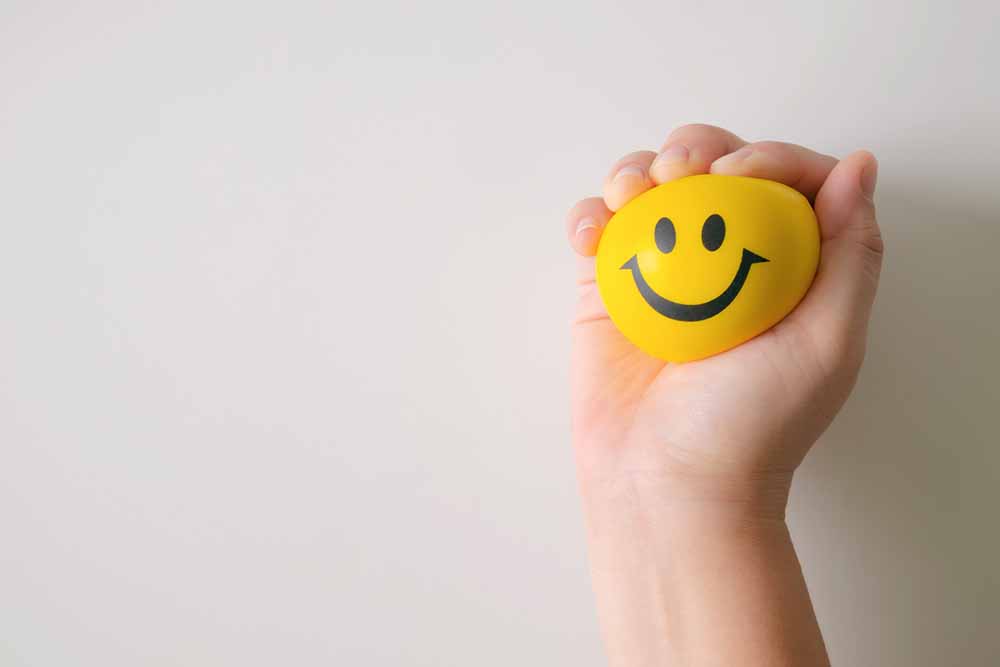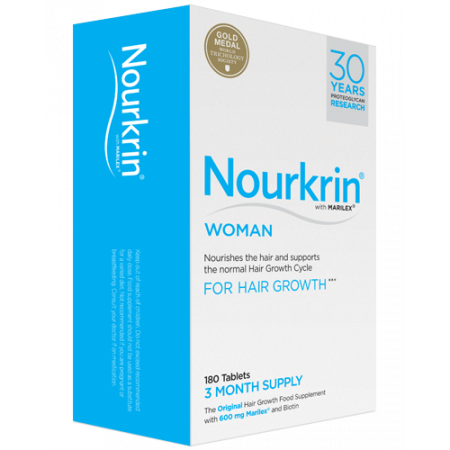Hair loss affects an estimated eight million women in Britain and stress is a major factor – as Charlotte Dormon found. But there are solutions that really work
Like most women, I never thought I’d lose my hair.
I first noticed something wasn’t right whilst brushing my hair one day before work when quite a lot more hair than usual was falling out with more noticeable amounts on my hairbrush too.
Then I started to notice lots of hair on my pillow, beneath the chair at the office and often at the end of the day, my clothing would be covered.
I also noticed that my hair felt thinner when I tied it up – my ponytail seemed to go from thick to thin overnight, until I was so embarrassed I stopped tying my hair back and going to my workout classes.
Take a look at the picture below, it may not seem to many that my hair looks particularly thin, but for me it really was. Plus I was brushing my hair forwards to make it look like it was thicker from the front, to try and disguise the thinning, especially from the back.

Fast forward just a few months later and I had lost almost half my hair. I tried hair masks and vitamins but it just kept falling out almost every time I touched, brushed or washed it. I know the pictures don’t show giant bald patches, but I think I became expert at covering up the thinning, which was so stressful.
One day, I looked in the mirror and finally faced up to the fact that my hair was falling out dramatically and I had no idea how to stop it.
But why? I was under a huge amount of stress which sparked an emotional breakdown.
How the stress of getting married took its toll
Most women would be excited at the thought of getting married, rather than stressed. But my wedding plans and secret relationship struggles were causing me so much stress, and one of the symptoms of that (that I now know in hindsight) was the hair loss.
After a heart to heart with one of my team at work, I finally decided it was time to deal with my stress and tell my fiancé what was going on as the cost (my hair and my mental health) was too much.
When he proposed to me on a beach as the sun went down, I felt like all my dreams had come true. Fast forward a few months later though and the fairy tale became a nightmare – hence the stress.
Despite the happy proposal, my job was becoming increasingly stressful and demanding, with the same being said for my new fiance, who was running the risk of potentially losing his business.
We didn’t have any savings and spoke about borrowing money or putting expenses on credit cards for the wedding. That didn’t sit well with me at all after previously wracking up credit card debt in my 20s.
The thought of more debt, just to say ‘I do’ was terrifying.
Work and money stress started to turn into relationship stress and, as time went on, the arguments grew bigger and the shouting got louder.
On top of all of the job, wedding and relationship stress, we were also hunting the market to buy our first home.
But we simply did not have the money.
Tears instead of excitement
All the while, everyone was continually asking about the wedding and instead of being excited, I wanted to cry, reveal that we had no money and that the best thing to do would be to put the wedding on hold. But my partner was having none of it.
This relentless stress was having a huge impact on my health (and my hair). I started to take medication for anxiety and sleep, as I felt so overwhelmed by it all.
As the weeks went by I was feeling majorly burned out and sick of lying to everyone that I was excited about my glamorous wedding day, when in reality I was anything but.
I didn’t want to talk about wedding dresses, wedding hair, venues or flowers. Yet, I carried on pretending and coping with the crippling stress. My hair falling out was the final straw.
After some very angry yet long overdue words with my fiance, we eventually made peace and he understood what pressure I was under.
It was clear too that even he had realised that my hair was showing major signs of thinning, and understood that it was indeed linked to stress.

Stress and hair loss
For so many of us, hair is a defining feature of who we are as an individual. That’s why hair that is less than its best can make us feel self-conscious, isolated, embarrassed and less attractive.
That’s why 46 per cent of women who experience hair loss or hair thinning suffer in silence, feeling too insecure or embarrassed to talk about their situation.
An estimated 8 million women in the UK experience some degree of hair loss or hair thinning at any given time.
Hormones, stress, illness, medication, poor nutrition, over-styling – there are so many factors that can cause hair growth disruptions, but only some are preventable.
‘Most people are extremely stressed these days and it’s on an upward curve,’ says hair loss expert Dr Omar.
‘Stress causes inflammation in the body from heightened cortisol levels (that’s the body’s stress hormone), that manifests in hair loss. If you are sure your hair loss has been triggered by stress, managing your stress could be the key to returning to a healthy rate of hair growth,’ adds Dr Omar.
Stress is a huge factor when it comes to hair loss and although it can be managed, it is still difficult to avoid.
If the stressful situation was due to a short term event such as moving house, then your hair should return to normal in about three to four months.
But, if it is long-term stress is due to a relationship or work, then your hair is unlikely to improve unless serious action is taken to resolve your stress.

Here’s what works for reducing stress and helping hair growth
Firstly, I spoke to my GP who confirmed my fears and explained that excess stress over a longer period can cause the hair follicles to stop working and shed hair, which unless treated could continue to shed.
I found time to research how to get my beloved hair to grow back again. I knew there were a few things that might help, but was extremely skeptical that they would actually work.
Unfortunately the NHS weren’t offering much help and although medication can reduce stress hormones, I wanted to look into more natural options to help my hair grow back.
There are many therapies that have been proven to help with stress such as mindfulness, counselling and cognitive behavioural therapy (CBT). Alternatively you could give a yoga a go, or try meditation. And of course, exercise helps too.
Ultimately it was time to tackle the stress and find some natural products that could help. Plus, I also wanted to find hair growth products so that my hair had the best possible chance to be as healthy as it could.
All the steps listed below are those I still use to this day to maintain my healthy hair…
Step #1 Find a scientifically proven hair growth product
I found out (and automatically) invested in a scientifically proven hair growth supplement called Nourkrin, which I heard could protect hair follicles from stress hormones and help the hair growth cycle to start again.
Nourkrin is documented in several published clinical papers and is the only clinically proven Proteoglycan Replacement Therapy (PRT) for hair loss on the market, plus it’s also the only hair growth supplement to be awarded the gold medal by leading experts at the World Trichology Society.
Here’s how PRT works:
Clinically proven to induce hair follicles back into their growth phase, Nourkrin, which uses Marilex (a fish extract that provides a very unique and very specific combination of nutrients) is rich in key proteoglycans that are present in human hair follicles and are essential to hair follicle cycling.
Marilex interacts with specific growth factors that help influence and maintain a healthy Hair Growth Cycle.
‘The proteoglycans in Nourkrin have been extracted from fish, through a unique extraction process and provide a targeted supply of these essential nutrients to help re-balance the Hair Growth Cycle and stimulate existing hair growth,’ says Dr Omar. ‘This can take anything between three to 12 months with the minimum recommended treatment being a six month course’.
Proteoglycans are essential to hair growth cycle and those who lose their hair tend to have an imbalance. An essential part of the hair follicle they’re essentially biological molecules present extensively throughout the body too.
Nourkrin products are scientifically formulated to provide the correct nutrients required to normalise and maintain the Hair Growth Cycle, especially if there is an imbalance.
Basically, through PRT, hair follicles are induced back into the growth phase by reintroducing specific hair growing phase components to the body.

I took Nourkrin every morning without fail and after two months my hair started to grow back and after six months I had a much fuller head of hair. But most importantly, I stopped shedding loads of hair every day.
My shower plughole no longer needed clearing after each shower – a major relief. To this day my hair is a lot stronger and grows really well.
Try: Nourkrin Woman, £50.95, 60 tablets, take two tablets each day. This supplement needs to be taken for a minimum of three to six months to have a visible affect.
Nourkrin Woman is also available to buy on Amazon in the US and in the UK.
Step #2 Take Ashwagandha

After much research, I learnt that nutrients minerals and vitamins have a key role to play in the way we feel mentally and there are a number of supplements and superfoods that can act as natural highs to boost mood, energy, improve sleep and give us a sense of well being.
One of those is ashwagandha, which is part of the botanical family called adaptogens, and these provide strong nervous system support.
Ashwagandha is believed to have a chemical compound called withanolide that is said to help regulate blood sugar levels which helps you to lower the stress hormone cortisol and calm you down.
This stress supporting herb has also been said to help your body become more resilient to everyday stress.
Ashwagandha can be taken in powder form but I find it far easier to take the capsules. I use Pukka Wholistic Ashwagandha capsules. Take two capsules daily. Available to buy on Amazon in the US and in the UK.
Step #3 Take a B vitamin complex with magnesium
It turns out, B vitamins are key when it comes to relieving stress. Many chemical processes that take place in the body require B vitamins, which play a key role in the conversion of amino acids into neurotransmitters which are the feel good chemicals in our brains.
B6 vitamins in particular, are essential for producing adequate levels of serotonin and dopamine, our brains’ essential feel-good neurotransmitters. They regulate mood, motivation and melatonin.
Melatonin is the sleep chemical in your body, so obviously when stress is prolonged, your sleep will suffer, and if your sleep suffers so will your concentration.
Magnesium also helps to regulate stress hormones in the body
Vitamin B5 is also important. Known as the anti-stress vitamin, it helps with bodily processes that spike during the stress response, such as the production of adrenal hormones, cholesterol and immune antibodies.
Try: Link Nutrition B complex.
Magnesium too has been a game changer for me. Magnesium increases a chemical neurotransmitter in the brain called GABA, which encourages relaxation as well as sleep.
Low GABA levels in the body can make it difficult to relax. Magnesium promotes good sleep by helping us unwind, and it’s an important factor in how our body manages its sleep cycle.
A 2012 study found that 500mg magnesium taken for eight weeks before bed had a positive improvement on insomnia levels.
Magnesium also helps to regulate stress hormones in the body and is important to help balance blood sugar which can help keep nerves calm.
Step #4 Find some self-help books
I read (and listened) to plenty of self-help books specifically on self development, and becoming aware of my stress behaviours.

These books made me become acutely aware that I was allowing myself to stay in overly stressful situations such as working long hours, people pleasing, not saying no to things that could impact my overall health.
I decided never to just put up with a situation that made me feel that anxious and unhappy again. Now, instead I try and find what will help the situation and do exactly that, no matter what. My health is worth more than anything.
Try reading:
- The Power Is Within You, Louise Hay
- You Can Heal Your Life, Louise Hay
- Change Your Thoughts Change Your Life, Dr Wayne W. Dyer
- Oh and literally anything by Marianne Williamson
In the video below, Dr Omar, hair loss expert and medical consultant for Nourkrin provides expert advice on debunking hair loss myths and stop you from wasting money on the lies.
Relevant Healthista Content:
7 causes of hair loss – plus solutions proven by science
Hair falling out? This expert advice on hair loss will help
WIN Nourkrin hair growth products worth £380 – and say hello to longer, healthier hair
Curly hair? Natural hairstyles for every hair type
Healthista Content you may also like:
‘I was addicted to my alcoholic partner’
10 minute guided meditation to help you build trust in yourself
Stressed? This 5 minute calming meditation will help
5 effects of stress that seriously impact your health
Like this article? Sign up to our newsletter to get more articles like this delivered straight to your inbox.



















































